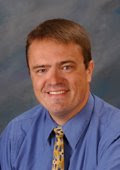I felt the need to mention that it was Diane Sawyer who agreed to read ABC News' infamous apology to Philip Morris in the 1990s for the tobacco story the network aired and resulted in a huge legal settlement -- and also likely opened the door powerful tobacco regulation today.
Some have argued that ABC apologized for something it didn't do -- all in the run-up to Disney's acquisition of the venerable network. Click here for an excellent, balanced overview of this story. As it shows, the facts around the story are controversial.
That a journalist's primary commodity is integrity, to read an apology for something not done, would be, therefore, to call into question that primary commodity.
For what it is worth, Bogdanich, a gem of a human being, is now at The New York Times and has won three pulitzers, including for this powerful series. He may be America's greatest investigative reporter today. He was not fired for the story -- in fact, ABC increased his salary and issued a press release after the settlement. He also worked at 60 minutes on tobacco.
It is ABC's decision to hire the hard-working, talented Sawyer for this position, but it deserves to be remembered that she read the apology on the air in deciding whether to watch her or not.
